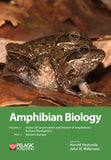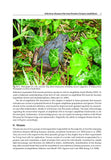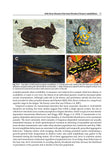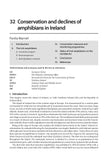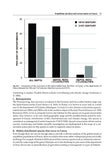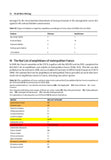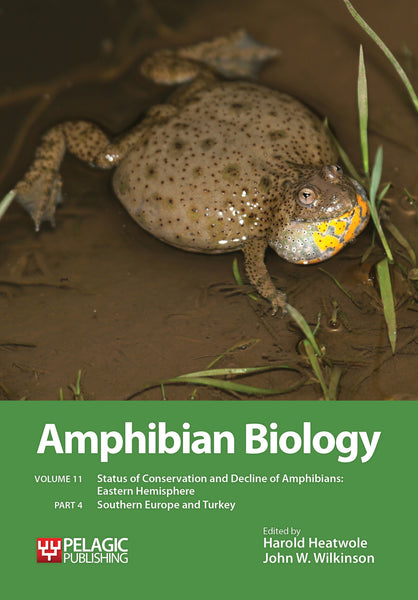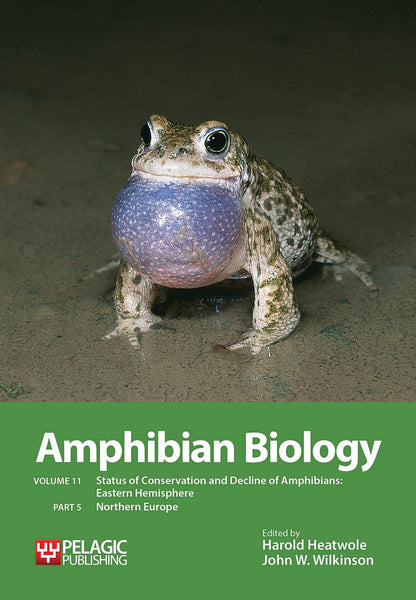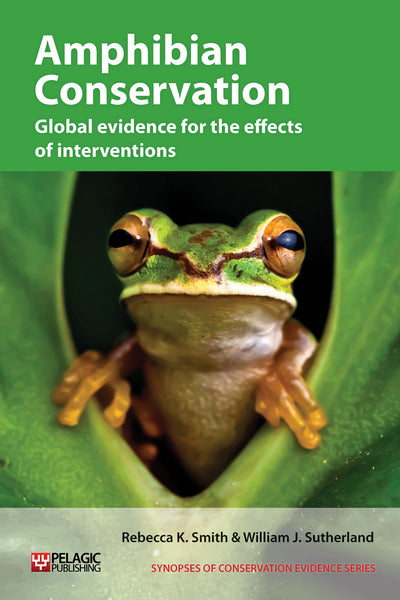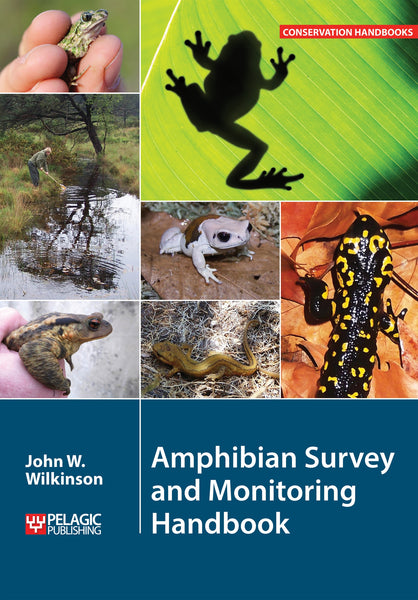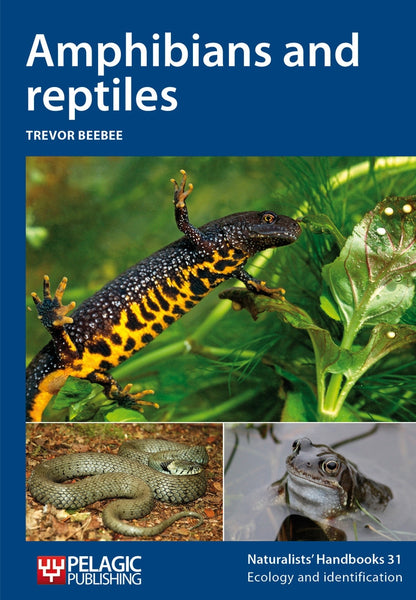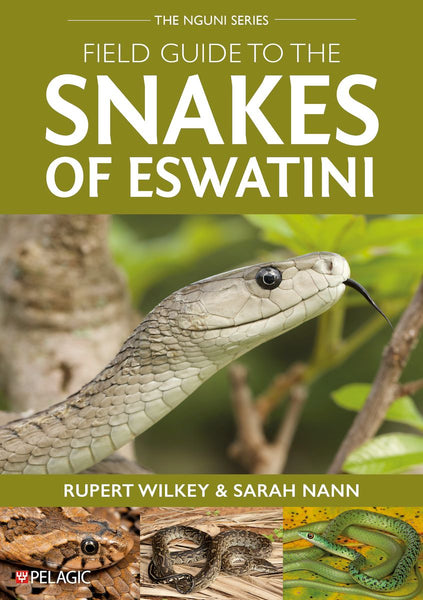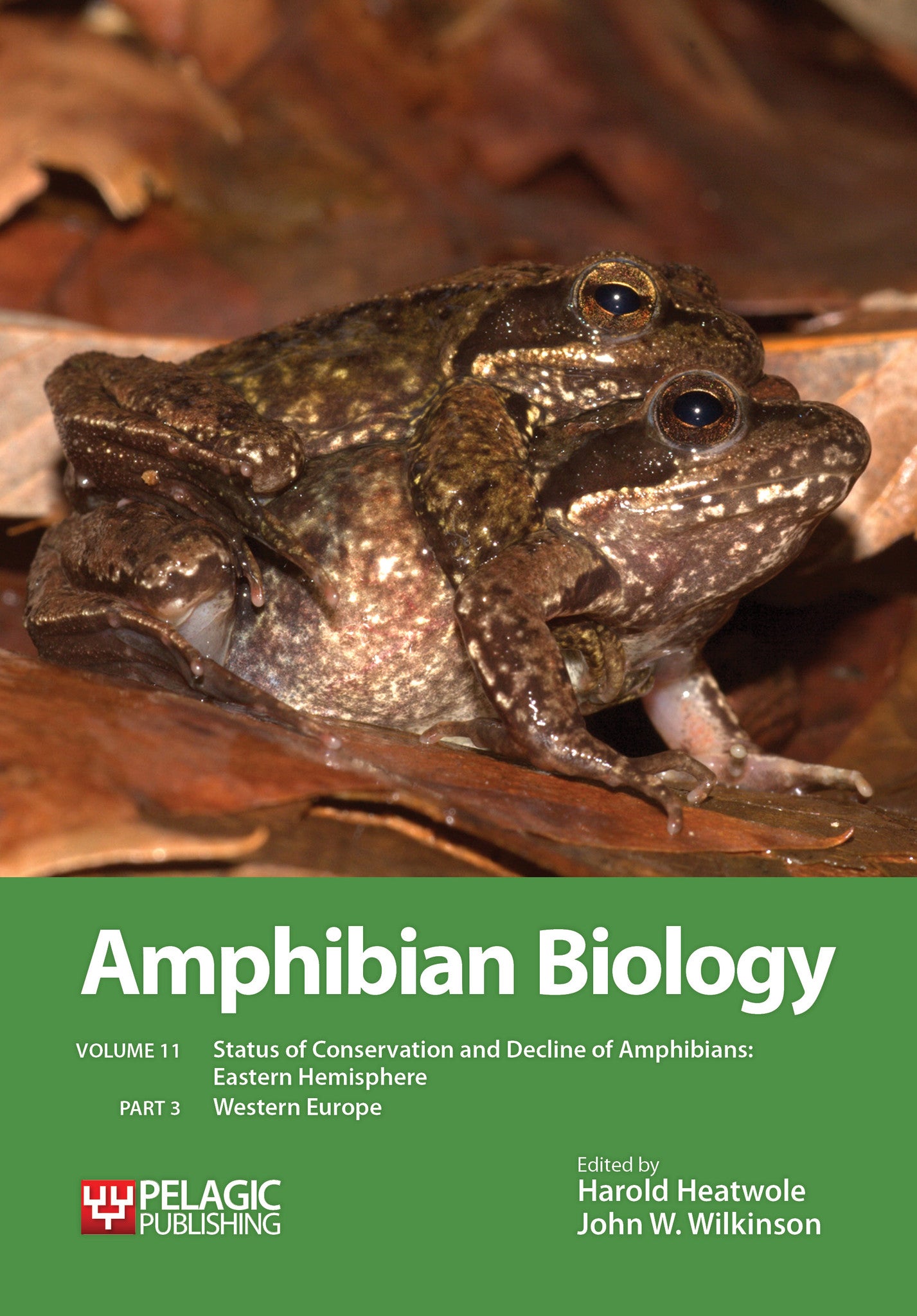
Amphibian Biology, Volume 11, Part 3
Status of Conservation and Decline of Amphibians: Eastern Hemisphere: Western Europe
- Addresses the entire range of threats to amphibians
- Contributions by country experts
- Provides recommendations for action
- amphibians
- conservation
- decline
- ecology
Description
Amphibian species around the world are unusually vulnerable to a variety of threats, by no means all of which are properly understood. Volume 11 in this major series will be published in parts devoted to the causes of amphibian decline and to conservation measures in regions of the world; this Part 3 is concerned with Western Europe (Britain, Ireland, The Netherlands, Belgium, France, Spain and Portugal).
Experts from each country contribute a chapter describing the ecological background and the conservation status of affected species, with an emphasis on native species. As well as infectious diseases and parasites (also covered in a general chapter), threats take the form of introduced and invasive species, pollution, destruction and alteration of habitat, and climate change. These are discussed as they affect each species. All these countries have monitoring schemes and conservation programmes, whose origins and activities are described. Recommendations for action are also made.
Edited by leading scholars in the field, Volume 11, when complete, will therefore provide a definitive survey of the amphibian predicament and a stimulus to further research with the objective of arresting the global decline of an entire class of animal.
Readership
Biologists, ecologists, herpetologists, policy-makersTable of Contents
31 Infectious Diseases that May Threaten Europe’s Amphibians
Trenton W. J. Garner, An Martel, Jon Bielby, Jaime Bosch, Lucy G. Anderson, Anna Meredith, Andrew A. Cunningham, Matthew C. Fisher, Daniel A. Henk, and Frank Pasmans
32 Conservation and Declines of Amphibians in Ireland
Ferdia Marnell
33 Amphibian Declines and Conservation in Britain
John W. Wilkinson and Richard A. Griffiths
34 Conservation and Declines of Amphibians in The Netherlands
Anton H. P. Stumpel
35 Amphibian Declines and Conservation in Belgium
Gerald Louette and Dirk Bauwens
36 Amphibian Declines and Conservation in France
Jean-Pierre Vacher and Claude Miaud
37 Conservation and Declines of Amphibians in Spain
Cesar Ayres, Enrique Ayllon, Jaime Bosch, Alberto Montori, Manuel Ortiz-Santaliestra and Vicente Sancho
38 Conservation and Declines of Amphibians in Portugal
Rui Rebelo, Maria José Domingues Castro, Maria João Cruz, José Miguel Oliveira, José Teixeira, and Eduardo Crespo
About the Author
Harold Heatwole is an ecologist and herpetologist. His first PhD (University of Michigan) dealt with habitat use by amphibians, but then he branched out and studied other taxa, mostly reptiles and amphibians, but also ants, tardigrades, and seabirds. He earned a second PhD in Botany with a dissertation on the dynamics of vegetation on coral cays on the Great Barrier Reef of Australia (University of Queensland). He completed his education with a PhD in Geography (James Cook University) and a DsC (University of New England, Australia). He had faculty appointments at the University of Puerto Rico, University of New England, and currently is Professor of Biology at North Carolina State University and Adjunct Professor of Zoology at the University of New England. He is editor in Chief of the journal Integrative and Comparative Biology. He is a Fellow of the Explorers Club.
John W. Wilkinson is a conservation biologist specializing in studying and monitoring amphibians and reptiles. He started working with herpetofauna whilst an undergraduate and now nobody will give him a proper job. For eight years he was International Coordinator of the Declining Amphibian Populations Task Force and is currently Science Program Manager for the charity Amphibian and Reptile Conservation. John's PhD thesis was on toad conservation - it just made him realize how much more there is to find out...
Bibliographic Information
 110 pages
110 pages - Colour figures
- Tables
- BISAC SCI070000, SCI020000, SCI008000, NAT011000, NAT037000, NAT028000, NAT010000
- BIC PSVW3, WNCK, PSVS, RNKH, RNK, PS






